Data-driven Humanitarian Mapping
Harnessing Data and Human-Machine Intelligence for Actionable Policy Decisions
KDD 2020 Conference Workshop, August 24, 2020
ACM SIGKDD Conference on Knowledge Discovery and Data Mining
August 23-27, 2020
Learn MoreAugust 23-27, 2020
Register
Cover Image: Temporary settlement camps for refugees
Vision
The KDD Workshop on Data-driven Humanitarian Mapping brings together a global community of leading researchers and decision-makers from computer scientists, data scientists to epidemiologists, economists, urban policy researchers, computational social scientists, privacy researchers, legal scholars, and humanitarian organizations with a commonly shared priority research agenda.
Our goal is to bridge the gap between theory, practice, technology transfer, and actionable policymaking in humanitarian actions. Together, we aim to advance the knowledge of data-driven humanitarian actions in the preparation, mitigation, response, and recovery phases of disasters. The ongoing crisis of the COVID-19 coronavirus pandemic exemplifies the criticality of data-driven humanitarian mapping, measurement development, and evidence-based causal decision evaluation. There is much to be done and is a substantial opportunity for cross-collaboration.
Data-driven methodologies are an important component in humanitarian mapping, and play a key role in— (1) developing procedures for collecting and validating humanitarian data ; (2) developing novel algorithmic and inference techniques for mapping; (3) addressing privacy, fairness, justice, and historical biases challenges in spatiotemporal data and humanitarian decision making; (4) understanding evacuation and displacement due to disasters; (5) predicting the socio-economic impact of disasters for policymaking and humanitarian logistics; (6) formulating effective governance strategies for mitigating and containing epidemics; (7) delivering insights at scale to humanitarian responders, urban planners, and policymakers. These emergent data-driven endeavors augment humanitarian mapping and generate a comprehensive picture of worldwide population densities, refugee resettlements, disease spreads, contact tracing, social distancing measures, social behavior, infrastructure damages, and urban development.
Despite these promising advancements, there remain important gaps that can be filled by closer collaboration and coordination between research and practitioner communities. For example, while researchers harness massive datasets on human mobility to parametrize accurate models of disease spread and consequently form effective policies and mitigation strategies, a parallel stream of work has identified the substantial privacy, reliability, bias, and historical injustice risks that these datasets can pose. Specifically, data about human mobility is highly sensitive not only at the level of individual trajectories but also when aggregated. How can data holders, policymakers, and researchers from different fields best collaborate to maximize the humanitarian value of such datasets while mitigating risks? The workshop seeks to examine and address questions like these through computational, legal, ethics, and operational lenses.
This is a critical time to convene a broad spectrum of researchers, humanitarian responders, and policymakers working in this space to collectively tackle big challenges. Join us in enhancing human capacity in harnessing data and human-machine intelligence for actionable policy decisions. In light of the COVID-19 outbreak, KDD 2020 conference and the Data-driven Humanitarian Mapping workshop will be fully virtual.
Citing the workshop:
@misc{hmkdd,
author={Gaikwad, Neil and
Iyer, Shankar and
Lin, Yu-Ru and
Lunga, Dalton
},
title={Data-driven Data-driven Humanitarian Mapping, Harnessing Data and Human-Machine Intelligence for Actionable Policy Decisions},
howpublished={ACM SIGKDD International Conference on Knowledge Discovery & Data Mining Workshop},
month=August,
year=2020
}
Our goal is to bridge the gap between theory, practice, technology transfer, and actionable policymaking in humanitarian actions. Together, we aim to advance the knowledge of data-driven humanitarian actions in the preparation, mitigation, response, and recovery phases of disasters. The ongoing crisis of the COVID-19 coronavirus pandemic exemplifies the criticality of data-driven humanitarian mapping, measurement development, and evidence-based causal decision evaluation. There is much to be done and is a substantial opportunity for cross-collaboration.
Data-driven methodologies are an important component in humanitarian mapping, and play a key role in— (1) developing procedures for collecting and validating humanitarian data ; (2) developing novel algorithmic and inference techniques for mapping; (3) addressing privacy, fairness, justice, and historical biases challenges in spatiotemporal data and humanitarian decision making; (4) understanding evacuation and displacement due to disasters; (5) predicting the socio-economic impact of disasters for policymaking and humanitarian logistics; (6) formulating effective governance strategies for mitigating and containing epidemics; (7) delivering insights at scale to humanitarian responders, urban planners, and policymakers. These emergent data-driven endeavors augment humanitarian mapping and generate a comprehensive picture of worldwide population densities, refugee resettlements, disease spreads, contact tracing, social distancing measures, social behavior, infrastructure damages, and urban development.
Despite these promising advancements, there remain important gaps that can be filled by closer collaboration and coordination between research and practitioner communities. For example, while researchers harness massive datasets on human mobility to parametrize accurate models of disease spread and consequently form effective policies and mitigation strategies, a parallel stream of work has identified the substantial privacy, reliability, bias, and historical injustice risks that these datasets can pose. Specifically, data about human mobility is highly sensitive not only at the level of individual trajectories but also when aggregated. How can data holders, policymakers, and researchers from different fields best collaborate to maximize the humanitarian value of such datasets while mitigating risks? The workshop seeks to examine and address questions like these through computational, legal, ethics, and operational lenses.
This is a critical time to convene a broad spectrum of researchers, humanitarian responders, and policymakers working in this space to collectively tackle big challenges. Join us in enhancing human capacity in harnessing data and human-machine intelligence for actionable policy decisions. In light of the COVID-19 outbreak, KDD 2020 conference and the Data-driven Humanitarian Mapping workshop will be fully virtual.
Citing the workshop:
@misc{hmkdd,
author={Gaikwad, Neil and
Iyer, Shankar and
Lin, Yu-Ru and
Lunga, Dalton
},
title={Data-driven Data-driven Humanitarian Mapping, Harnessing Data and Human-Machine Intelligence for Actionable Policy Decisions},
howpublished={ACM SIGKDD International Conference on Knowledge Discovery & Data Mining Workshop},
month=August,
year=2020
}

Image Source: Facebook Data for Good

JHU Coronavirus Resource Center (May 08, 2020)

PC: CDC, Alissa Eckert, MS; Dan Higgins, MAMS

PC Bhuvan Bagga/AFP/Getty via Financial Times
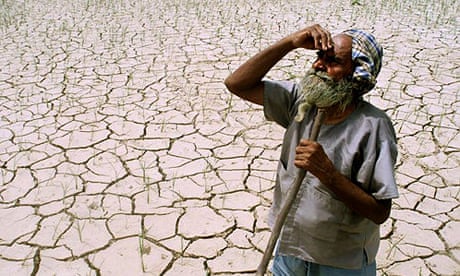
PC Dipak Kumar/Reuters via The Guardian
Call for Participation
The KDD Workshop on Data-driven Humanitarian Mapping solicits research papers, case studies, vision papers, software demos, extended abstracts for published work. We invite a broad community of researchers and practitioners from academia, industry, government, non-profit, and humanitarian policy domains to participate. Fields of interest include but are not limited to, data science, machine learning, epidemiology, public health, economics, urban planning, humanitarian logistics, networks science, remote sensing and geospatial analytics, computational social science, crowdsourcing, ethics, and law. Examples of topics that contributions can address include, but again are not limited to:
- Machine learning, data mining, computational epidemiology, operations research, and network science methodologies for expediting data-driven humanitarian mapping efforts (e.g., COVID-19 crisis, long-or-short-term displacements due to natural disasters, refugee resettlements, etc.) and informing policy decision
- Privacy-preserving technologies and governance mechanisms for humanitarian mapping and contact tracing
- Data-driven methods to understand the dynamics of movement, evacuation, and short-and-long-term displacements due to natural disasters
- Legal and justice issues in data-driven humanitarian mapping and disaster response
- Design and computational methods to detect biases and fairness in data-driven humanitarian mapping and crisis datasets
- Computational methods to understand the socio-economic impact of crisis
- Data visualization methods and systems for data-driven humanitarian mapping
- Remote Sensing and geospatial analytics methodologies for data-driven humanitarian mapping and urban policy decisions
- Crowdsourcing and human-machine collaboration methods for data-driven humanitarian mapping, contact tracing, social distancing data collection and validation
- Sociotechnical systems and practices for humanitarian data management, validation, and integration
- Analytics software demonstrations
- Insights from real-world cases studies, technology deployments, and humanitarian policymaking
- Emerging data-driven technologies and challenges for crisis management
- Critics and limitations of the current state of the arts in humanitarian response and vision for the future, including rigorous discussions on the gap between theory and policy practice
Submission Categories
The KDD Workshop on Data-driven Humanitarian Mapping solicits five kinds of submissions:
Please submit your paper using the submission site.
For more information contact us here.
Acceptance and Archival Policy
The KDD Workshop on Data-driven Humanitarian Mapping solicits five kinds of submissions:
- Research papers (6 pages + unlimited pages for references)
- Case Studies (4 pages + unlimited pages for references)
- Vision and Critics papers (2-5 pages + unlimited pages for references)
- Extended abstracts for Published Work (4 pages + unlimited pages for references)
- Software Demos (2 pages highlighting the problem, solution, analytical capabilities, and system design choices)
- The peer review process will be single-blind. The submission should include author names and affiliations.
- LaTex. Unzip acmart.zip, make, and use sample-sigconf.tex as a template. Download ACM Proceedings Template.
- Overleaf. Overleaf ACM Conference Proceedings Master Template.
- Microsoft Word. Download Microsoft Word.
- Submission deadline: May 20, 2020 at 11:59 PM Pacific Standard Time
- Acceptance notification: June 15, 2020
- Workshop: August 24, 2020
Please submit your paper using the submission site.
For more information contact us here.
Acceptance and Archival Policy
- Accepted papers will be presented as posters or contributed talks.
- We will highlight accepted papers in the program section of the workshop website. The authors may opt-in for a digital arXiv of the Data-driven Humanitarian Mapping Workshop once the paper is accepted.
Keynote Speakers
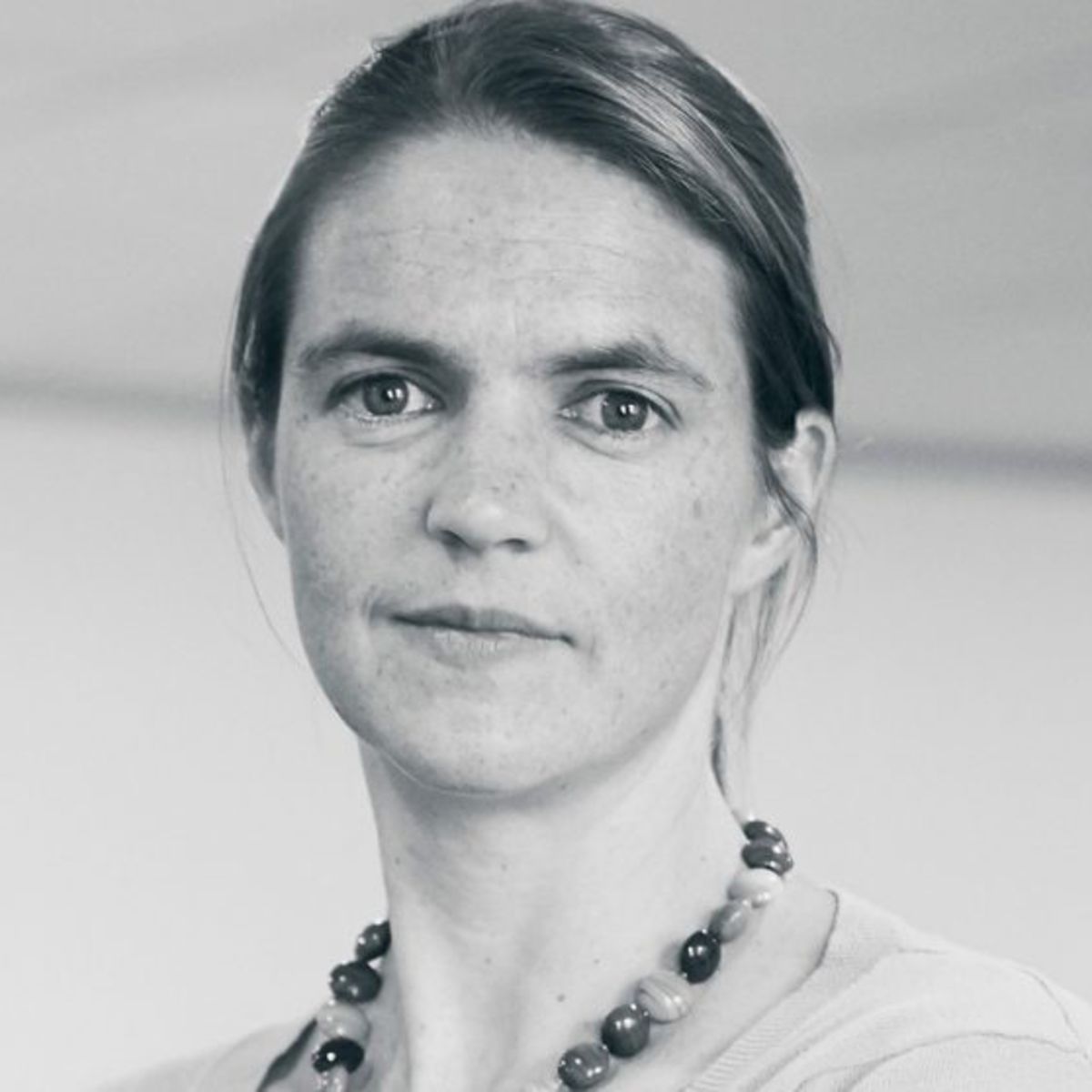
Dr. Caroline Buckee, Ph.D.
Associate Professor of Epidemiology
Associate Director of the Centre for Communicable Disease Dynamics
Harvard University
Associate Professor of Epidemiology
Associate Director of the Centre for Communicable Disease Dynamics
Harvard University
21st Century Disaster Response: Data, Methods, and Translational Readiness
Here I will discuss the challenges associated with responding to crises rapidly using new data analytic approaches. In many cases, advances in each of these three components of the translational pipeline - data, methods, and translation - are siloed. This makes it difficult to build the necessary response during an emergency. I will discuss the operationalization of mobility data during the COVID-19 response that the COVID-19 Mobility Data Network (CMDN) has undertaken during the pandemic, and highlight the importance of public, private, academic, and policy partnerships in harnessing new data streams for disaster response.
Speaker Biography: Dr. Caroline Buckee is an Associate Professor of Epidemiology and Associate Director of the Centre for Communicable Disease Dynamics at Harvard T.H. Chan School of Public Health. Her work is focused on understanding the mechanisms driving the spread of infectious diseases that impact the most vulnerable populations worldwide, particularly malaria. Before coming to Harvard, Dr. Buckee completed a D.Phil. at the University of Oxford, and Omidyar and Wellcome Trust fellowships at the Santa Fe Institute and the Kenya Medical Research Institute, respectively, where she analyzed malaria parasite evolution and epidemiology. Dr. Buckee’s group uses a range of mathematical models, experimental and genomic data, and “Big Data” from mobile phones and satellites to understand how human pathogens spread and may be controlled. Her work has appeared in high profile scientific journals such as Science and PNAS, as well as being featured in the popular press, including CNN, The New Scientist, Voice of America, NPR, and ABC. Dr. Buckee was featured as one of MIT Tech Review’s 35 Innovators Under 35, a CNN Top 10: Thinker, and Foreign Policy Magazine’s 100 Global Thinkers.
Speaker Biography: Dr. Caroline Buckee is an Associate Professor of Epidemiology and Associate Director of the Centre for Communicable Disease Dynamics at Harvard T.H. Chan School of Public Health. Her work is focused on understanding the mechanisms driving the spread of infectious diseases that impact the most vulnerable populations worldwide, particularly malaria. Before coming to Harvard, Dr. Buckee completed a D.Phil. at the University of Oxford, and Omidyar and Wellcome Trust fellowships at the Santa Fe Institute and the Kenya Medical Research Institute, respectively, where she analyzed malaria parasite evolution and epidemiology. Dr. Buckee’s group uses a range of mathematical models, experimental and genomic data, and “Big Data” from mobile phones and satellites to understand how human pathogens spread and may be controlled. Her work has appeared in high profile scientific journals such as Science and PNAS, as well as being featured in the popular press, including CNN, The New Scientist, Voice of America, NPR, and ABC. Dr. Buckee was featured as one of MIT Tech Review’s 35 Innovators Under 35, a CNN Top 10: Thinker, and Foreign Policy Magazine’s 100 Global Thinkers.

Interpreting Empty Spaces: How do We Know What We Don’t Know?
Key questions for humanitarian interventions and policy decisions often hinge on geography. Where is violence increasing? What regions experienced the worst destruction? What neighborhoods have the highest rates of infection and hospitalization? But all of these questions require implicit comparisons and the assumption that what we observe represents what happened. Yet in many humanitarian crises, we do not have the luxury of complete or representative data. So how do we know what we don’t know? And how do we know if what we don’t know if skewing our answers to these crucial questions?
Speaker Biography: As the Executive Director of the Human Rights Data Analysis Group, Megan Price designs strategies and methods for statistical analysis of human rights data for projects in a variety of locations including Guatemala, Colombia, and Syria. Her work in Guatemala includes serving as the lead statistician on a project in which she analyzed documents from the National Police Archive; she has also contributed analyses submitted as evidence in two court cases in Guatemala. Her work in Syria includes serving as the lead statistician and author on three reports, commissioned by the Office of the United Nations High Commissioner of Human Rights (OHCHR), on documented deaths in that country.
Megan is a member of the Technical Advisory Board for the Office of the Prosecutor at the International Criminal Court and a Research Fellow at the Carnegie Mellon University Center for Human Rights Science. She is the Human Rights Editor for the Statistical Journal of the International Association for Official Statistics (IAOS) and on the editorial board of Significance Magazine. She earned her doctorate in biostatistics and a Certificate in Human Rights from the Rollins School of Public Health at Emory University. She also holds a master of science degree and bachelor of science degree in Statistics from Case Western Reserve University. From 2013 through 2015, Megan was the Director of Research at HRDAG; on December 1, 2015, she became Executive Director.
Speaker Biography: As the Executive Director of the Human Rights Data Analysis Group, Megan Price designs strategies and methods for statistical analysis of human rights data for projects in a variety of locations including Guatemala, Colombia, and Syria. Her work in Guatemala includes serving as the lead statistician on a project in which she analyzed documents from the National Police Archive; she has also contributed analyses submitted as evidence in two court cases in Guatemala. Her work in Syria includes serving as the lead statistician and author on three reports, commissioned by the Office of the United Nations High Commissioner of Human Rights (OHCHR), on documented deaths in that country.
Megan is a member of the Technical Advisory Board for the Office of the Prosecutor at the International Criminal Court and a Research Fellow at the Carnegie Mellon University Center for Human Rights Science. She is the Human Rights Editor for the Statistical Journal of the International Association for Official Statistics (IAOS) and on the editorial board of Significance Magazine. She earned her doctorate in biostatistics and a Certificate in Human Rights from the Rollins School of Public Health at Emory University. She also holds a master of science degree and bachelor of science degree in Statistics from Case Western Reserve University. From 2013 through 2015, Megan was the Director of Research at HRDAG; on December 1, 2015, she became Executive Director.
Panelists
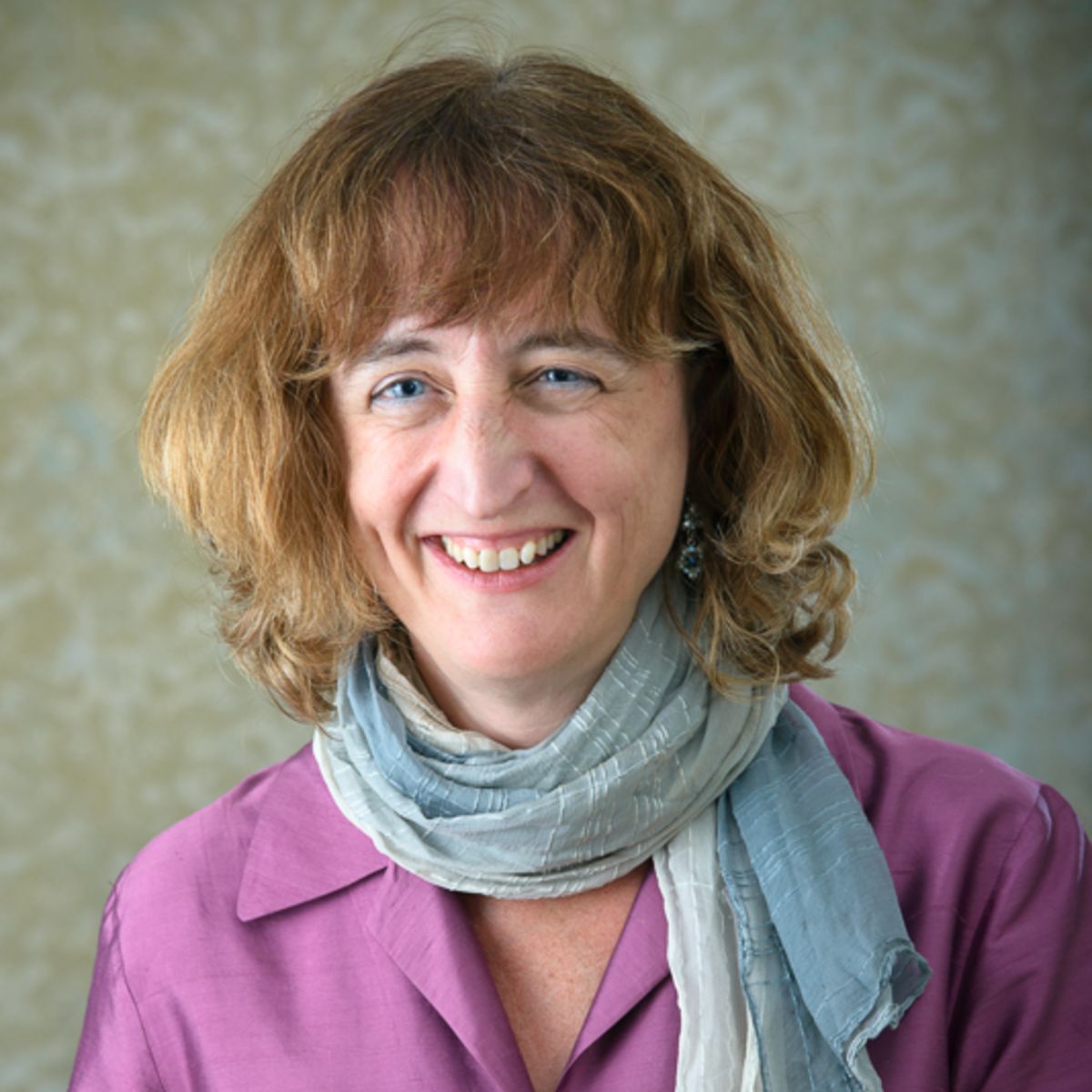
Karen Chapple, PhD
Professor and Chair
City and Regional Planning
University of California, Berkeley
Professor and Chair
City and Regional Planning
University of California, Berkeley
Karen Chapple, Ph.D., is Professor and Chair of City and Regional Planning at the University of California, Berkeley, where she holds the Carmel P. Friesen Chair in Urban Studies. Chapple studies inequalities in the planning, development, and governance of regions in the U.S. and Latin America. Her recent books include Planning Sustainable Cities and Regions: Towards More Equitable Development (Routledge 2015, and winner of the John Friedmann Book Award); Transit-Oriented Displacement or Community Dividends? Understanding the Effects of Smarter Growth on Communities (with Anastasia Loukaitou-Sideris, MIT Press, 2019); and Fragile Governance and Local Economic Development: Theory and Evidence from Peripheral Regions in Latin America (with Sergio Montero, Routledge, 2018). In Fall 2015, she co-founded the Urban Displacement Project, a research portal examining patterns of residential, commercial, and industrial displacement, as well as policy solutions. Chapple holds a B.A. in Urban Studies from Columbia University, an M.S.C.R.P from the Pratt Institute, and a Ph.D. from UC Berkeley. She has served on the faculties of the University of Minnesota and the University of Pennsylvania, in addition to UC Berkeley.

Justin Ginnetti
Head of Data and Analysis
Internal Displacement Monitoring Centre
Head of Data and Analysis
Internal Displacement Monitoring Centre
Justin Ginnetti is IDMC’s Head of Data and Analysis. He joined IDMC in 2012 after having served as a policy officer at the UN’s office of disaster risk reduction (UNISDR) where he worked on the Global Assessment Report. He served as a chapter scientist and contributing author of the IPCC’s Special Report on Extreme Events and Disasters (SREX), and the WMO’s guidance on assessing droughts. At IDMC, Justin and his team are responsible for all of the figures in the Global Report on Internal Displacement. He also leads IDMC’s efforts to estimate future displacement risk, assess displacement associated with slow-onset hazards, detect incidents of internal displacement and fill gaps in data through the use of mathematical models, analysis of “big data” and new technologies.
Justin holds a master’s degree in law and diplomacy from the Fletcher School at Tufts University, where he studied climate change-induced displacement and forced migration of agro-pastoralists in the Horn of Africa. Previously, he earned bachelor’s and master’s degrees in English literature from the University of Pennsylvania.
Justin holds a master’s degree in law and diplomacy from the Fletcher School at Tufts University, where he studied climate change-induced displacement and forced migration of agro-pastoralists in the Horn of Africa. Previously, he earned bachelor’s and master’s degrees in English literature from the University of Pennsylvania.

Paige Maas is a data scientist on Facebook’s Core Data Science team, and works on Data for Good to help create maps that humanitarians can use to support communities recovering from disaster. Prior to Facebook, she earned her Ph.D. in Biostatistics from Johns Hopkins University and completed a postdoc at the National Cancer Institute.
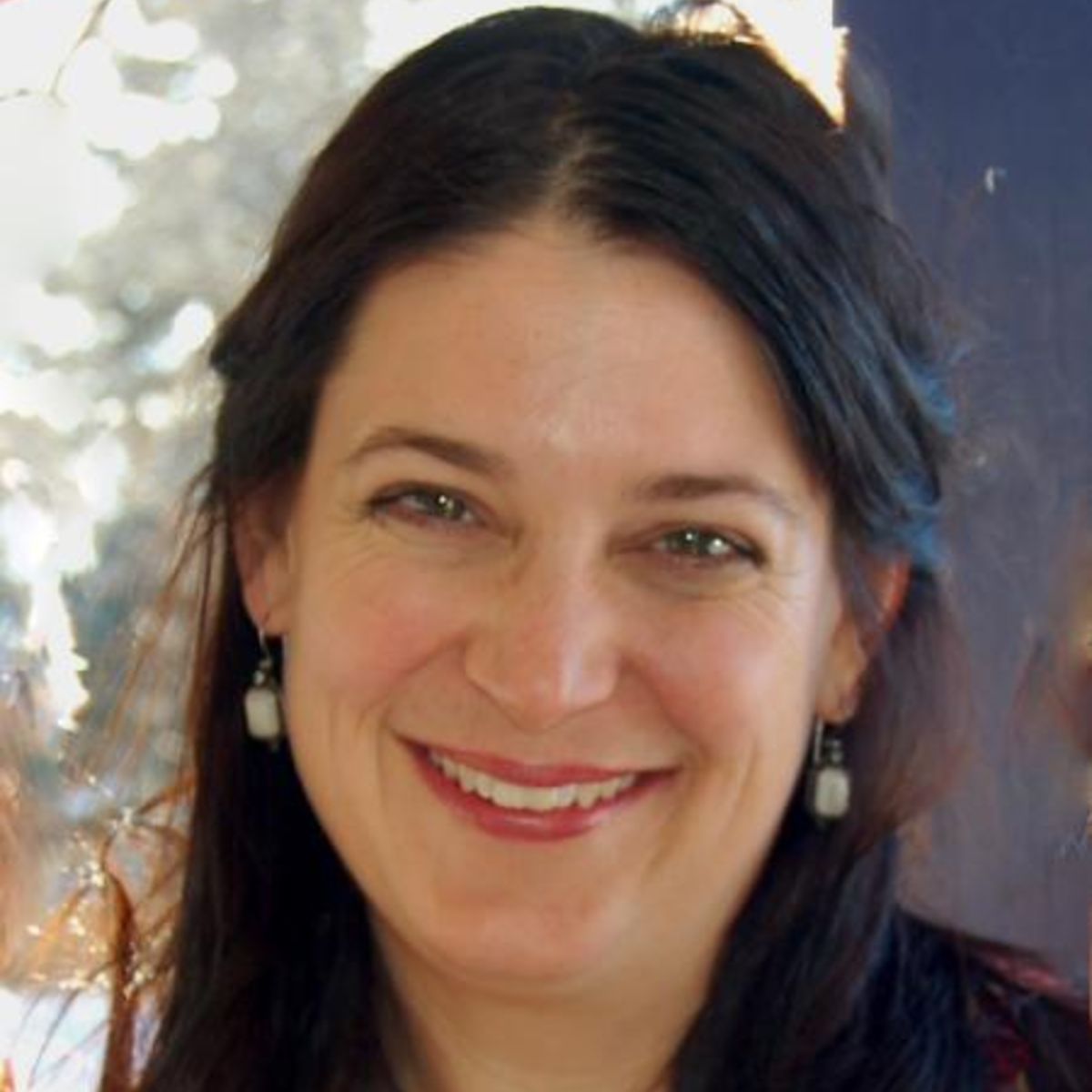
Dyan Mazurana, PhD
Director Feinstein’s Research Program on Women, Children, and Armed Conflict
Feinstein International Center
Tufts University
Director Feinstein’s Research Program on Women, Children, and Armed Conflict
Feinstein International Center
Tufts University
Dyan Mazurana directs Feinstein’s Research Program on Women, Children, and Armed Conflict and co-directs the Masters of Arts in Humanitarian Assistance (MAHA) Program. She focuses on gendered dimensions of humanitarian response to conflict and crises, documenting serious crimes committed during conflict, and accountability, remedy, and reparation. She serves as an advisor to several governments, UN agencies, human rights NGOs, and child protection organizations regarding humanitarian assistance and improving efforts to assist youth and women affected by armed conflict. This work includes the protection of women and children during armed conflict, including those people associated with fighting forces, as well as remedy and reparation in the aftermath of violence.
Dyan has written and developed training materials regarding gender, human rights, armed conflict, and post-conflict periods for civilian, police, and military peacekeepers involved in UN and NATO operations. In conjunction with international human rights groups, she contributed to materials now widely used to assist in documenting serious violations and abuses against women and girls during conflict and post-conflict reconstruction periods. She has worked in Afghanistan, the Balkans, Nepal, and southern, west and east Africa. She has published more than 100 scholarly and policy books, articles, and international reports and her work has been translated into more than 30 languages.
Mazurana has a Ph.D. and an M.A. in women’s studies from Clark University, where she studied International Relations and Comparative Politics; International Humanitarian Law and International Human Rights Law during armed conflict, with an emphasis on women’s rights; Critical Social Theory, English and Comparative Languages. She also holds an M.A. and B.F.A. from the University of Wyoming, where she studied painting, art history, and feminist theory.
Dyan has practiced in the Zen Buddhist tradition of the Order of Interbeing under Zen Master Thich Nhat Hanh for more than 20 years. She lives with her two children and their dog in a home with ever expanding gardens.
Dyan has written and developed training materials regarding gender, human rights, armed conflict, and post-conflict periods for civilian, police, and military peacekeepers involved in UN and NATO operations. In conjunction with international human rights groups, she contributed to materials now widely used to assist in documenting serious violations and abuses against women and girls during conflict and post-conflict reconstruction periods. She has worked in Afghanistan, the Balkans, Nepal, and southern, west and east Africa. She has published more than 100 scholarly and policy books, articles, and international reports and her work has been translated into more than 30 languages.
Mazurana has a Ph.D. and an M.A. in women’s studies from Clark University, where she studied International Relations and Comparative Politics; International Humanitarian Law and International Human Rights Law during armed conflict, with an emphasis on women’s rights; Critical Social Theory, English and Comparative Languages. She also holds an M.A. and B.F.A. from the University of Wyoming, where she studied painting, art history, and feminist theory.
Dyan has practiced in the Zen Buddhist tradition of the Order of Interbeing under Zen Master Thich Nhat Hanh for more than 20 years. She lives with her two children and their dog in a home with ever expanding gardens.
Program
Pacific Standard Time
AUGUST 24th, 2020
8:00 AM
OPENING REMARKS
Inception: Humanitarian Mapping
Harnessing Data and Human-Machine Intelligence for Actionable Policy Decisions
Inception: Humanitarian Mapping
Harnessing Data and Human-Machine Intelligence for Actionable Policy Decisions
8:15 AM
KEYNOTE
Dr. Caroline Buckee
Associate Professor of Epidemiology
Associate Director of the Centre for Communicable Disease Dynamics at Harvard T.H. Chan School of Public Health, Harvard University
21st Century Disaster Response: Data, Methods, and Translational Readiness
Here I will discuss the challenges associated with responding to crises rapidly using new data analytic approaches. In many cases, advances in each of these three components of the translational pipeline - data, methods, and translation - are siloed. This makes it difficult to build the necessary response during an emergency. I will discuss the operationalization of mobility data during the COVID-19 response that the COVID-19 Mobility Data Network (CMDN) has undertaken during the pandemic, and highlight the importance of public, private, academic, and policy partnerships in harnessing new data streams for disaster response.
Dr. Caroline Buckee
Associate Professor of Epidemiology
Associate Director of the Centre for Communicable Disease Dynamics at Harvard T.H. Chan School of Public Health, Harvard University
21st Century Disaster Response: Data, Methods, and Translational Readiness
Here I will discuss the challenges associated with responding to crises rapidly using new data analytic approaches. In many cases, advances in each of these three components of the translational pipeline - data, methods, and translation - are siloed. This makes it difficult to build the necessary response during an emergency. I will discuss the operationalization of mobility data during the COVID-19 response that the COVID-19 Mobility Data Network (CMDN) has undertaken during the pandemic, and highlight the importance of public, private, academic, and policy partnerships in harnessing new data streams for disaster response.
9:00 AM
PANEL
Data and Policy Driven Humanitarian Actions for Crises and Climate Change Induced Displacements
The panel delves deeper into methods and policy dimensions of crises and climate change-induced displacement including, data-and-computation driven methods for measurements; conflicts; data imprecision, risks, and biases; race, children, and gender; inequalities and policy engagements; trust and ethical practices; inclusive future of humanitarian mapping
Dr. Karen Chapple (Ph.D.)
Professor and Chair of City and Regional Planning
University of California, Berkeley
Justin Ginnetti
Head of Data and Analysis
Internal Displacement Monitoring Centre (IDMC)
Dr. Paige Maas (Ph.D.)
Data Scientist
Facebook Core Data Science
Dr. Dyan Mazurana (Ph.D.)
Director Feinstein’s Research Program on Women, Children, and Armed Conflict
Feinstein International Center
Tufts University
Data and Policy Driven Humanitarian Actions for Crises and Climate Change Induced Displacements
The panel delves deeper into methods and policy dimensions of crises and climate change-induced displacement including, data-and-computation driven methods for measurements; conflicts; data imprecision, risks, and biases; race, children, and gender; inequalities and policy engagements; trust and ethical practices; inclusive future of humanitarian mapping
Dr. Karen Chapple (Ph.D.)
Professor and Chair of City and Regional Planning
University of California, Berkeley
Justin Ginnetti
Head of Data and Analysis
Internal Displacement Monitoring Centre (IDMC)
Dr. Paige Maas (Ph.D.)
Data Scientist
Facebook Core Data Science
Dr. Dyan Mazurana (Ph.D.)
Director Feinstein’s Research Program on Women, Children, and Armed Conflict
Feinstein International Center
Tufts University
10:00 AM
BREAKOUT
Connect and Engage
Connect and Engage
10:15 AM
THE COVID-19 PANDEMIC: MEASUREMENTS AND ESTIMATIONS
Data, Models, and Systems for Uncertainty Quantification
Privacy-Preserving Methods and Systems
Constraints and Limitations of Methods
CoronaSurveys: Using Surveys with Indirect Reporting to Estimate the Incidence and Evolution of Epidemicsopen_in_new Paper
Oluwasegun Ojo; Augusto García-Agundez; Benjamin Girault; Harold Hernández; Elisa Cabana; Amanda García; Payman Arabshahi; Carlos Baquero; Paolo Casari; Ednaldo José Ferreira; Davide Frey; Chryssis Georgiou; Mathieu Goessens; Anna Ishchenko; Igor Sikorsky; Ernesto Jiménez, UPM; Oleksiy Kebkal; Rosa Lillo; Raquel Menezes; Nicolas Nicolaou; Antonio Ortega; Paul Patras; Julian C Roberts; Efstathios Stavrakis; Yuichi Tanaka; Antonio Fernández Anta
Mapping the South African Health Landscape in Response to COVID-19 open_in_new Paper
Nompumelelo Mtsweni; Herkulaas Combrink; Vukosi Marivate
Heatmap Release for COVID-19 Using Lipschitz Privacy
Abhishek Singh; Praneeth Vepakomma; Ramesh Raskar
Dialogue and conversation with authors
Data, Models, and Systems for Uncertainty Quantification
Privacy-Preserving Methods and Systems
Constraints and Limitations of Methods
CoronaSurveys: Using Surveys with Indirect Reporting to Estimate the Incidence and Evolution of Epidemicsopen_in_new Paper
Oluwasegun Ojo; Augusto García-Agundez; Benjamin Girault; Harold Hernández; Elisa Cabana; Amanda García; Payman Arabshahi; Carlos Baquero; Paolo Casari; Ednaldo José Ferreira; Davide Frey; Chryssis Georgiou; Mathieu Goessens; Anna Ishchenko; Igor Sikorsky; Ernesto Jiménez, UPM; Oleksiy Kebkal; Rosa Lillo; Raquel Menezes; Nicolas Nicolaou; Antonio Ortega; Paul Patras; Julian C Roberts; Efstathios Stavrakis; Yuichi Tanaka; Antonio Fernández Anta
Mapping the South African Health Landscape in Response to COVID-19 open_in_new Paper
Nompumelelo Mtsweni; Herkulaas Combrink; Vukosi Marivate
Heatmap Release for COVID-19 Using Lipschitz Privacy
Abhishek Singh; Praneeth Vepakomma; Ramesh Raskar
Dialogue and conversation with authors
10:45 AM
RESPONSE TO THE COVID-19 PANDEMIC: INTEGRATED MODELING
FROM DATA, MODELS, AND COMPUTATIONS TO INFORMED DECISION MAKING
Heterogeneous Data, Integrated Modeling Frameworks, AI and Society
Decision Making and Learnings from Different Regions
Modeling Between-Population Variation in COVID-19 Dynamics in Hubei, Lombardy, and New York City open_in_new Paper
Bryan Wilder; Marie-Laure Charpignon; Jackson Killian; Han-Ching Ou; Aditya Mate; Shahin Jabbari; Andrew Perrault; Angel Desai; Milind Tambe; Maimuna Majumder
Evaluating COVID-19 Lockdown Policies For India: A Preliminary Modeling Assessment for Individual Statesopen_in_new Paper
Aditya Mate; Jackson Killian; Bryan Wilder; Marie-Laure Charpignon; Ananya Awasthi; Milind Tambe; Maimuna Majumder
Case Study: Using Facebook Data to Monitor Adherence to Stay-at-home Orders in Colorado and Utah open_in_new Paper
Ryan Layer; Bailey Fosdick; Michael Bradshaw; Daniel Larremore; Paul Doherty
Dialogue and conversation with authors
FROM DATA, MODELS, AND COMPUTATIONS TO INFORMED DECISION MAKING
Heterogeneous Data, Integrated Modeling Frameworks, AI and Society
Decision Making and Learnings from Different Regions
Modeling Between-Population Variation in COVID-19 Dynamics in Hubei, Lombardy, and New York City open_in_new Paper
Bryan Wilder; Marie-Laure Charpignon; Jackson Killian; Han-Ching Ou; Aditya Mate; Shahin Jabbari; Andrew Perrault; Angel Desai; Milind Tambe; Maimuna Majumder
Evaluating COVID-19 Lockdown Policies For India: A Preliminary Modeling Assessment for Individual Statesopen_in_new Paper
Aditya Mate; Jackson Killian; Bryan Wilder; Marie-Laure Charpignon; Ananya Awasthi; Milind Tambe; Maimuna Majumder
Case Study: Using Facebook Data to Monitor Adherence to Stay-at-home Orders in Colorado and Utah open_in_new Paper
Ryan Layer; Bailey Fosdick; Michael Bradshaw; Daniel Larremore; Paul Doherty
Dialogue and conversation with authors
11:10 AM
SHORT BREAK
11:15 AM
KEYNOTE
Dr. Megan Price
Executive Director, the Human Rights Data Analysis Group
Interpreting Empty Spaces: How do We Know What We Don’t Know?
Key questions for humanitarian interventions and policy decisions often hinge on geography. Where is violence increasing? What regions experienced the worst destruction? What neighborhoods have the highest rates of infection and hospitalization? But all of these questions require implicit comparisons and the assumption that what we observe represents what happened. Yet in many humanitarian crises, we do not have the luxury of complete or representative data. So how do we know what we don’t know? And how do we know if what we don’t know if skewing our answers to these crucial questions?
Dr. Megan Price
Executive Director, the Human Rights Data Analysis Group
Interpreting Empty Spaces: How do We Know What We Don’t Know?
Key questions for humanitarian interventions and policy decisions often hinge on geography. Where is violence increasing? What regions experienced the worst destruction? What neighborhoods have the highest rates of infection and hospitalization? But all of these questions require implicit comparisons and the assumption that what we observe represents what happened. Yet in many humanitarian crises, we do not have the luxury of complete or representative data. So how do we know what we don’t know? And how do we know if what we don’t know if skewing our answers to these crucial questions?
12:00 PM
CONSTRAINT BASED MAPPING OF UNKNOWNS
Privacy Constraints and Guarantees
Health, Sparse Data, and Satellite Data
Privacy Guarantees for Personal Mobility Data in Humanitarian Response
Nitin Kohli; Emily Aiken; Joshua Blumenstock
Mapping for Public Health: Initial Plan for Using Satellite Imagery for Micronutrient Deficiency Prediction open_in_new Paper
Elizabeth Bondi; Andrew Perrault; Fei Fang; Benjamin Rice; Christopher Golden; Milind Tambe
Map With AI and RapiD Editor for OpenStreetMap
Danil Kirsanov; Yunzhi Lin; Drisitie Patel; Jeff Underwood
Dialogue and conversation with authors
Privacy Constraints and Guarantees
Health, Sparse Data, and Satellite Data
Privacy Guarantees for Personal Mobility Data in Humanitarian Response
Nitin Kohli; Emily Aiken; Joshua Blumenstock
Mapping for Public Health: Initial Plan for Using Satellite Imagery for Micronutrient Deficiency Prediction open_in_new Paper
Elizabeth Bondi; Andrew Perrault; Fei Fang; Benjamin Rice; Christopher Golden; Milind Tambe
Map With AI and RapiD Editor for OpenStreetMap
Danil Kirsanov; Yunzhi Lin; Drisitie Patel; Jeff Underwood
Dialogue and conversation with authors
12:30 PM
LUNCH BREAKOUT
Connect and Engage
Connect and Engage
1:30 PM
ENVIRONMENTAL AND SOCIETAL DIMENSION OF CONFLICTS AND DISPLACEMENTS
Rapid Response Crop Maps in Data Sparse Regionsopen_in_new Paper
Hannah Kerner; Gabriel Tseng, Okra Solar; Inbal Becker-Reshef; Catherine Nakalembe; Brian Barker; Blake Munshell; Madhava Paliyam; Mehdi Hosseini
Identifying Meaningful Indirect Indicators of Migration or Different Conflictsopen_in_new Paper
Lisa Singh; Katharine Donato; Ali Arab; Tomas Alvarez Belon; Abraham Fraifeld; Sean Fulmer; Douglas Post; Yanchen Wang
An LSTM Approach to Predict Migration Based on Google Trendsopen_in_new Paper
Nicolas Golenvaux; Pablo Gonzalez; Harold Kiossou; Pierre Schaus
Fair Navigation Planning: a Humanitarian Robot Use Caseopen_in_new Paper
Martim Brandao
Dialogue and conversation with authors
Rapid Response Crop Maps in Data Sparse Regionsopen_in_new Paper
Hannah Kerner; Gabriel Tseng, Okra Solar; Inbal Becker-Reshef; Catherine Nakalembe; Brian Barker; Blake Munshell; Madhava Paliyam; Mehdi Hosseini
Identifying Meaningful Indirect Indicators of Migration or Different Conflictsopen_in_new Paper
Lisa Singh; Katharine Donato; Ali Arab; Tomas Alvarez Belon; Abraham Fraifeld; Sean Fulmer; Douglas Post; Yanchen Wang
An LSTM Approach to Predict Migration Based on Google Trendsopen_in_new Paper
Nicolas Golenvaux; Pablo Gonzalez; Harold Kiossou; Pierre Schaus
Fair Navigation Planning: a Humanitarian Robot Use Caseopen_in_new Paper
Martim Brandao
Dialogue and conversation with authors
2:00 PM
HUMAN DYNAMICS DURING CRISIS: THINKING AT LOCAL AND GLOBAL SCALE
Regions: US, Europe, Asia-Pacific, and Latin America
Uncovering Socioeconomic Gaps in Mobility Reduction During the COVID-19 Pandemic Using Location Dataopen_in_new Paper
Samuel Fraiberger; Pablo Astudillo; Lorenzo Candeago; Alex Chunet; Nicholas Jones; Maham Khan; Bruno Lepri; Nancy Lozano Gracia; Lorenzo Lucchini; Emanuele Massaro; Aleister Montfort
Evaluating COVID-19 Lockdown and Business-Sector-Specific Reopening Policies for Three US Statesopen_in_new Paper
Jackson Killian; Marie-Laure Charpignon; Bryan Wilder; Andrew Perrault; Milind Tambe; Maimuna Majumder
Temporary Displacement From Metropolitan Areas in Italy During COVID-19open_in_new Paper
Francesco Pierri; Francesco Scotti; Giovanni Bonaccorsi; Andrea Flori; Fabio Pammolli
Dialogue and conversation with authors
Regions: US, Europe, Asia-Pacific, and Latin America
Uncovering Socioeconomic Gaps in Mobility Reduction During the COVID-19 Pandemic Using Location Dataopen_in_new Paper
Samuel Fraiberger; Pablo Astudillo; Lorenzo Candeago; Alex Chunet; Nicholas Jones; Maham Khan; Bruno Lepri; Nancy Lozano Gracia; Lorenzo Lucchini; Emanuele Massaro; Aleister Montfort
Evaluating COVID-19 Lockdown and Business-Sector-Specific Reopening Policies for Three US Statesopen_in_new Paper
Jackson Killian; Marie-Laure Charpignon; Bryan Wilder; Andrew Perrault; Milind Tambe; Maimuna Majumder
Temporary Displacement From Metropolitan Areas in Italy During COVID-19open_in_new Paper
Francesco Pierri; Francesco Scotti; Giovanni Bonaccorsi; Andrea Flori; Fabio Pammolli
Dialogue and conversation with authors
2:30 PM
MAPPING THE DYNAMICS OF LATENT DIMENSIONS
Development, Urban-and-missing Spaces, Informal Settlements, and Conflicts
Urban Safety and Security Indicators in Conflict-Sensitive Informal Settlements: A Case Study of Lomas del Centinela, Guadalajara, México
Leticia Izquierdo; Cristian Jara Figeroa; Guadalupe Babio Fernandez; Maitane Iruretagoyena; Luis Alonso Pastor; Kent Larson
Case study: Mapping Potential Informal Settlements Areas in Tegucigalpa with Machine Learning to Plan Ground Surveyopen_in_new Paper
Federico Bayle; Damian Emiliano Silvani
Mapping the Missing spaces and the role of Generic Slum Ontology
Divyani Kohli; Caroline M. Gevaert; Monika Kuffer
Magnify Your Population: Statistical Downscaling to Augment the Spatial Resolution of Socioeconomic Census Dataopen_in_new Paper
Giulia Carella; Andy Eschbacher; Dongjie Fan; Miguel Álvarez; Álvaro Arredondo; Alejandro Polvillo Hall; Javier Pérez Trufero; Javier De La Torre
Learning to Score Economic Development From Satellite Imageryopen_in_new Paper
Sungwon Han; Donghyun Ahn; Sungwon Park; Jeasurk Yang; Susang Lee; Jihee Kim; Hyunjoo Yang; Sangyoon Park; Meeyoung Cha
Dialogue and conversation with authors
Development, Urban-and-missing Spaces, Informal Settlements, and Conflicts
Urban Safety and Security Indicators in Conflict-Sensitive Informal Settlements: A Case Study of Lomas del Centinela, Guadalajara, México
Leticia Izquierdo; Cristian Jara Figeroa; Guadalupe Babio Fernandez; Maitane Iruretagoyena; Luis Alonso Pastor; Kent Larson
Case study: Mapping Potential Informal Settlements Areas in Tegucigalpa with Machine Learning to Plan Ground Surveyopen_in_new Paper
Federico Bayle; Damian Emiliano Silvani
Mapping the Missing spaces and the role of Generic Slum Ontology
Divyani Kohli; Caroline M. Gevaert; Monika Kuffer
Magnify Your Population: Statistical Downscaling to Augment the Spatial Resolution of Socioeconomic Census Dataopen_in_new Paper
Giulia Carella; Andy Eschbacher; Dongjie Fan; Miguel Álvarez; Álvaro Arredondo; Alejandro Polvillo Hall; Javier Pérez Trufero; Javier De La Torre
Learning to Score Economic Development From Satellite Imageryopen_in_new Paper
Sungwon Han; Donghyun Ahn; Sungwon Park; Jeasurk Yang; Susang Lee; Jihee Kim; Hyunjoo Yang; Sangyoon Park; Meeyoung Cha
Dialogue and conversation with authors
3:15 PM
PLENARY SESSION
Data-driven Humanitarian Mapping: Community Discussion and Path to Future
Data-driven Humanitarian Mapping: Community Discussion and Path to Future
3:50 PM – 4:00 PM
REFLECTIONS AND CLOSING REMARKS
Registration and Diversity Scholarship
Registration Details
- Click here to register for the workshop. Select "Workshop/Tutorials Only" as your registration type.
- The registration deadline is August 20, 2020, at 11:59 PM (PST).
- The workshop registration fee of KDD is $50. Please refer to the scholarship details below.
- Please check the KDD website for full conference registration details.
- Workshop Date: August 24, 2020, from 8:00 AM to 4:00 PM Pacific Standard Time. Please check the program for a detailed schedule.
Diversity Scholarship
Scholarship Information
The KDD Workshop on Data-driven Humanitarian Mapping welcomes and encourages participation by people of all backgrounds and identities across the world. We are committed to fostering and sustaining an environment of respect and inclusivity. To increase participation at the workshop by underrepresented and historically marginalized groups, we are offering need-based diversity scholarships. The scholarships will include complimentary registration to the 2020 KDD Data-driven Humanitarian Mapping Workshop. Applicants from underrepresented groups including, but not limited to: gender, identity, race, ethnicity, disabilities, socioeconomic status, discipline are encouraged to apply. The workshop organizers will review applications based on needs. Priority will be given to applicants who have their contributions accepted for presentation at the workshop. We also encourage other authors who have submitted the papers to the workshop and undergraduate students to apply. Note that this scholarship will not cover the cost for the registration to the main KDD conference.
Click here to apply for the diversity scholarship. The deadline is August 18, 2020, at 11:59 PM (PST). Notifications will be sent out by August 19, 2020, 11:59 PM (PST)
The KDD Workshop on Data-driven Humanitarian Mapping welcomes and encourages participation by people of all backgrounds and identities across the world. We are committed to fostering and sustaining an environment of respect and inclusivity. To increase participation at the workshop by underrepresented and historically marginalized groups, we are offering need-based diversity scholarships. The scholarships will include complimentary registration to the 2020 KDD Data-driven Humanitarian Mapping Workshop. Applicants from underrepresented groups including, but not limited to: gender, identity, race, ethnicity, disabilities, socioeconomic status, discipline are encouraged to apply. The workshop organizers will review applications based on needs. Priority will be given to applicants who have their contributions accepted for presentation at the workshop. We also encourage other authors who have submitted the papers to the workshop and undergraduate students to apply. Note that this scholarship will not cover the cost for the registration to the main KDD conference.
Click here to apply for the diversity scholarship. The deadline is August 18, 2020, at 11:59 PM (PST). Notifications will be sent out by August 19, 2020, 11:59 PM (PST)
Join the Community
Slack Group and Mailing List
Please register here to join the Data-driven Humanitarian Mapping slack group and mailing list.
Slack Group and Mailing List
Please register here to join the Data-driven Humanitarian Mapping slack group and mailing list.
Initiative Leads and Organizers
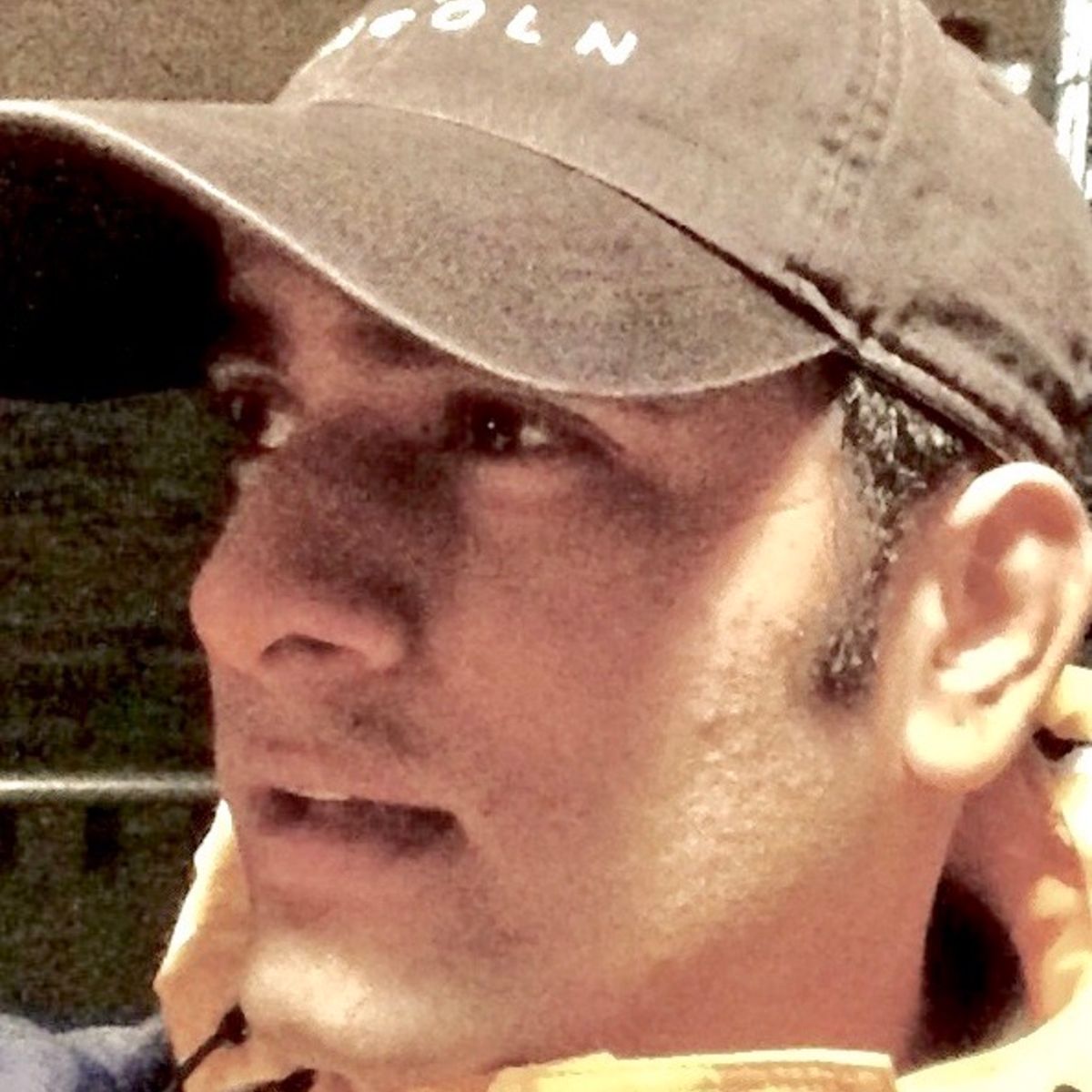
Neil S. Gaikwad
Doctoral Scholar, MIT Media Lab
Massachusetts Institute of Technology
Primary contact: gaikwad@mit.edu
Doctoral Scholar, MIT Media Lab
Massachusetts Institute of Technology
Primary contact: gaikwad@mit.edu



Dalton Lunga
Research Scientist
National Security Emerging Tech Division
Oak Ridge National Laboratory
Research Scientist
National Security Emerging Tech Division
Oak Ridge National Laboratory
Advisory Committee
- Budhu Bhaduri (Oak Ridge National Laboratory)
- Joshua Blumenstock (University of California, Berkeley)
- Carlos Castillo (Universitat Pompeu Fabra)
- Haishan Fu ( World Bank Group)
- Marta Gonzalez (University of California, Berkeley)
- Vipin Kumar (University of Minnesota)
- Miho Mazereeuw (MIT)
- Alex 'Sandy' Pentland (MIT Media Lab & MIT Connection Science)
- Megan Price (Human Rights Data Analysis Group)
- Ramesh Raskar (MIT Media Lab and PathCheck Foundation)
- Danielle Wood (MIT Media Lab & AeroAstro)
- Jie Yin (The University of Sydney)
Program Committee
- Andrés Abeliuk (University of Southern California)
- Kristen Altenburger (Facebook Research)
- Amanda Coston (Carnegie Mellon University)
- Silvia Danielak (Massachusetts Institute of Technology)
- Alex Dow (Facebook Research)
- Mert Ertugrul (University of Pittsburgh)
- Kiran Garimella (MIT Institute for Data, Systems, and Society)
- Eugenia Giraudy (Facebook Research)
- Katherine Hoffmann Pham (New York University and UN Global Pulse)
- Amanda Hughes (Brigham Young University)
- Grigorios Kalliatakis (University of Essex)
- Jackson Killian (Harvard University)
- Marina Kogan (University of Utah)
- Nishant Kishore (Harvard University)
- Kuldeep Kurte (Oak Ridge National Laboratory)
- Yan Leng (Massachusetts Institute of Technology/University of Texas, Austin)
- Tao Liu (Oak Ridge National Laboratory)
- Paige Maas (Facebook Research)
- Ayesha Mahmud (University of California, Berkeley)
- Aditya Mate (Harvard University)
- Esteban Moro (Massachusetts Institute of Technology and Universidad Carlos III de Madrid)
- Shruti Palaskar (Carnegie Mellon University)
- Kostas Pelechrinis (University of Pittsburgh)
- Alex Pompe (Facebook Research)
- Hemant Purohit (George Mason University)
- Minoo Rathnasabapathy (Massachusetts Institute of Technology)
- Sai Ravela (Massachusetts Institute of Technology)
- Aruna Sankaranarayanan (Massachusetts Institute of Technology)
- Afreen Siddiqi (Harvard Kennedy School and Massachusetts Institute of Technology)
- Vivek Singh (Rutgers University)
- Eric Sodomka (Facebook Research)
- Lijun Sun (Mcgill University)
- Gautum Thakur (Oak Ridge National Laboratory)
- Kentaro Torisawa (National Institute of Information and Communications Technology, Japan)
- Chintan Vaishnav (Massachusetts Institute of Technology)
- Soroush Vosoughi (Dartmouth College)
- Xidao Wen (University of Pittsburgh)
- Lily Xu (Harvard University)
Student Volunteers
- Indrayani Deshmukh, Northeastern University
- Xiaofan Liang, Georgia Institute of Technology
Acknowledgments
The inception of the workshop sparked from conversations between Neil Gaikwad, Carlos Castillo, Shankar Iyer, and Alex Dow in September-October, 2019. The organizers thank the following researchers for their valuable comments, feedback, and support.
- Alex Dow
- Alex Pompe
- Carlos Castillo
- Eric Sodomka
- Eugenia Giraudy
- Kelsey Mulcahy
- Paige Maas
Workshop Anti-harassment Policy
The KDD 2020 Data-driven Humanitarian Mapping Workshop organizers are dedicated to providing a harassment-free conference experience for everyone regardless of gender, gender identity and expression, sexual orientation, disability, physical appearance, body size, race, age or religion. We do not tolerate harassment of workshop participants in any form. Sexual language and imagery is not appropriate for any conference venue, including talks. Workshop participants violating these rules may be sanctioned or expelled from the workshop at the discretion of the organizers. If you have any concerns or questions please reach out to the organizers.